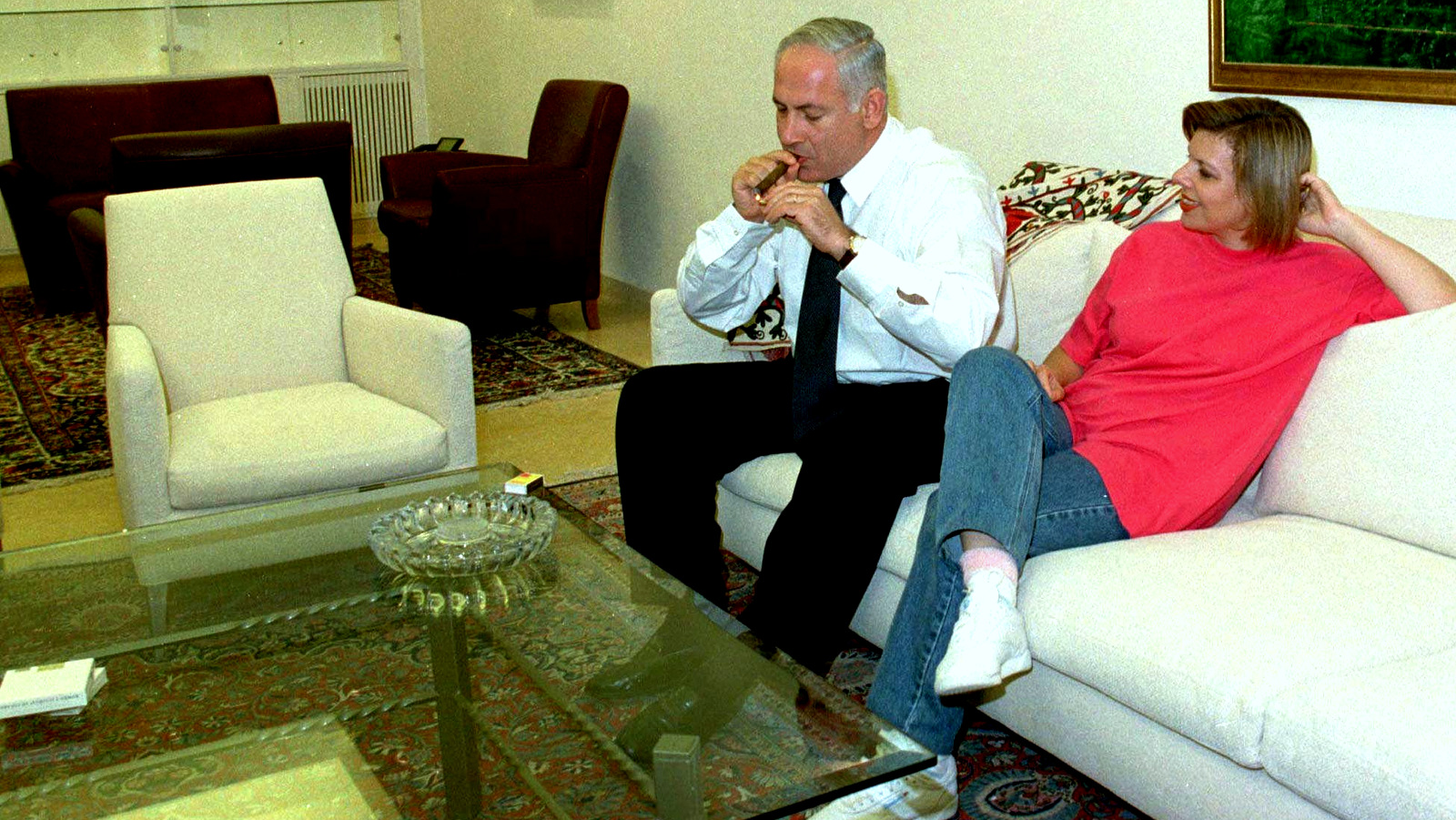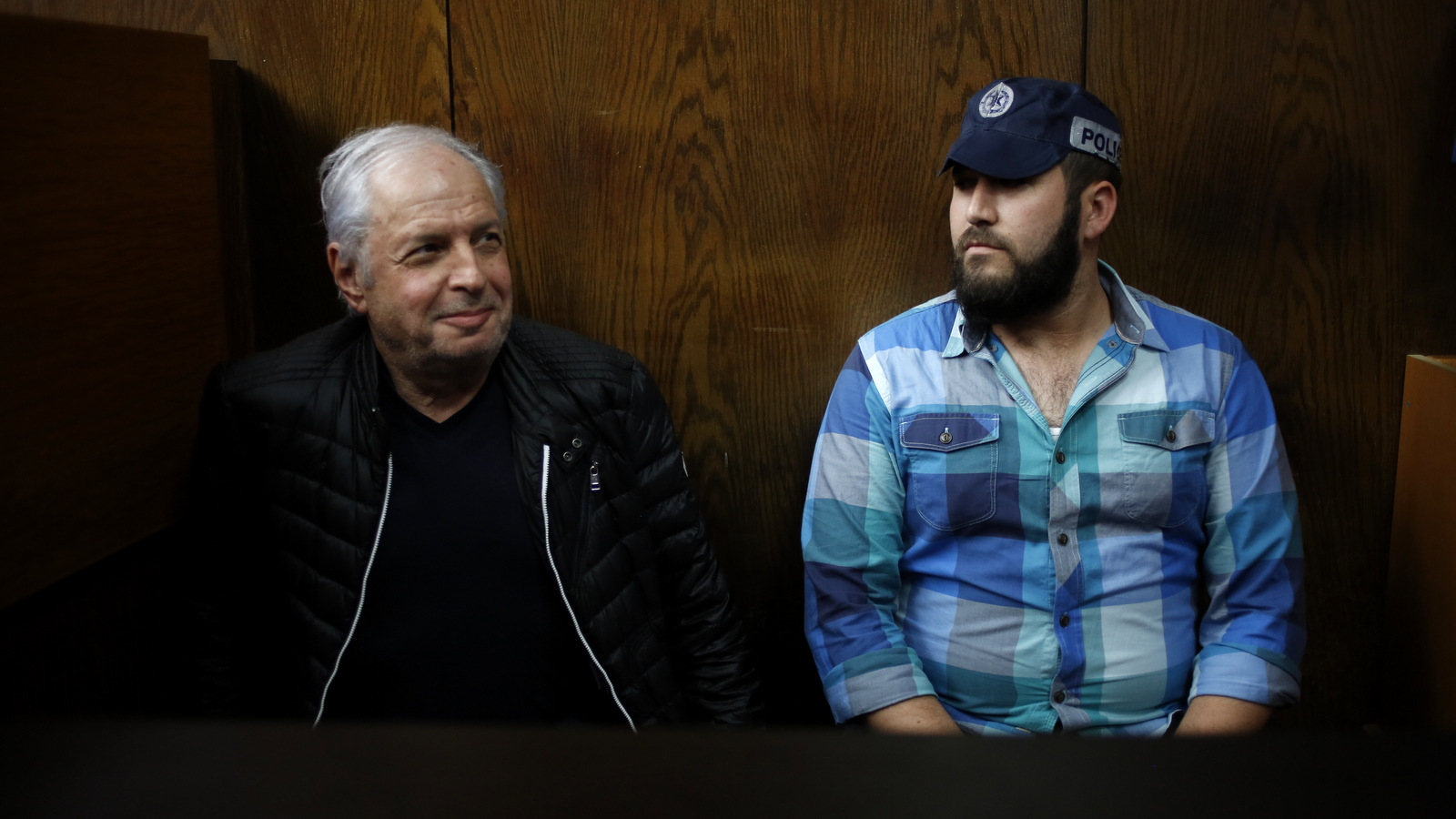TEL AVIV, ISRAEL (Analysis) — On February 13, Israeli police recommended that Prime Minister Benjamin Netanyahu be indicted in two corruption cases on suspicion of accepting bribes, fraud, and breach of trust. Under Israeli law, prime ministers do not need to resign unless they have been convicted of a serious crime. However, as noted by the New Yorker, precedent suggests that prime ministers under indictment should not be able to serve — the rationale being that such a figure cannot properly lead a country while busy preparing a legal defense to a criminal charge.
Ironically, the case against the Israeli prime minister has nothing to do with the various crimes his administration is committing against the Palestinian people and the people of Syria and Lebanon, and the egregious violations of the UN Charter with respect to Iran. Merely threatening war against another nation is a breach of international law, yet Netanyahu continues this warmongering policy on multiple fronts, with little to no criticism from international or domestic media.
In fact, Israel’s current acts of aggression against sovereign nations in the Middle East are most likely undertaken primarily as distractions from his own domestic failures, even though they are more than worthy of separate investigations of their own. While the many in the media continue to turn a blind eye to the thousands of people who have taken to the streets on a routine basis to protest against Netanyahu, very few people seem remotely as concerned with the various internationally criminal actions he has been conducting for years, when compared to the public outrage over Netanyahu’s domestic charges of corruption and bribery.
The case against Netanyahu


Sarah Netanyahu watches her husband, Israeli Prime Minister Benjamin Netanyahu, light a cigar in the living room of their newly refurbished official residence in Jerusalem Sunday Sept 28 1997. (AP/Zoom 77)
After more than a year of investigation, Israeli police have said they believe there is sufficient evidence against the prime minister to indict him on suspicion of giving political favors in exchange for gifts worth almost $300,000, and of cutting a deal with a prominent Israeli newspaper for more favorable coverage.
According to The Washington Post, Israel’s attorney general, Avichai Mandelblit, must now decide whether or not to indict Netanyahu, a process that could take months.
The first case against Netanyahu is referred to as “Case 1000” and concerns allegations that Netanyahu received $280,000 worth of gifts from Israeli-born Hollywood producer Arnon Milchan, who worked on movies such as Fight Club and Pretty Woman, as well as from Australian businessman James Packer. According to leaked reports, these gifts included Cuban cigars, worth $5,000 a month, as well as jewelry and expensive “pink champagne” for Netanyahu’s wife. Packer, on the other hand, allegedly paid for trips for Netanyahu and his family, including stays at luxury hotels.
Read more by Darius Shahtahmasebi
- Genocide? As Gaza Dries Out, Israel Turns Off Fresh Water Spigot
- Will Washington’s Syria Chess Game Lead to War with NATO Ally Turkey?
- The US Finally Tells the Truth About Its Objectives in Syria
-
Israel’s Ongoing Bombing of Syria Threatens Dangerous Escalation
According to the New Yorker, Netanyahu hasn’t actually denied receiving the gifts. What he has denied is what is termed in legal parlance as the mens rea of the offense; the element of deliberate intention. Netanyahu maintains that these gifts were not intended as bribes but instead were mere tokens of friendship. Even if that were the case, Israeli law prevents public representatives from receiving gifts that aren’t “of small value and reasonable in context.” While this is an ambiguous law for the attorney general to interpret, the fact remains that police officers reportedly found receipts in Milchan’s office for the purchase of cigars and other goods worth around $100,000 — arguably not “of small value.”
The alleged return for the lavish gifts was the promise that Netanyahu would lobby for a law that would extend the period in which Israelis returning to Israel, having lived overseas for 10 years, could enjoy a tax holiday. Yair Lapid — the head of the opposition party Yesh Atid, and Netanyahu’s arch-rival — has given evidence to the police investigation that Netanyahu had indeed lobbied him in pursuit of this legislative agenda. According to the New Yorker, at around the same time, Netanyahu also allegedly lobbied then Secretary of State John Kerry to extend Milchan’s visa in the U.S., as well as further helping him with investments in Israeli television.
The cases are piling up


Bezeq telecom’s Shaul Elovitch at the magistrate court in Tel Aviv, Feb. 22, 2018. Elovitch is suspected of involvement in a scandal in which Netanyahu promoted regulation worth hundreds of millions of dollars in exchange for favorable coverage in the Bezeq owned Walla News. (AP/Ariel Schalit)
The second case, known as “Case 2000,” involves a deal made between Netanyahu and Arnon Mozes, publisher of the popular Israeli daily, Yedioth Ahronoth. The agreement supposedly allowed the prime minister to receive more favorable coverage from the Yedioth newspaper if he agreed to weaken its rival daily newspaper, Israel Hayom, owned by the powerful billionaire Sheldon Adelson.
Surprisingly, the far-right Adelson has actually been a pro-Israeli Netanyahu ally for some time, having funded the Foundation for Defense of Democracies (FDD), a pro-Israeli neoconservative think tank that has worked closely with the United Arab Emirates to target Iran. He also contributed heavily to Donald Trump’s successful presidential campaign, writing an opinion piece for The Washington Post that outright endorsed the reality-TV star as a future president.
By 2014, Adelson allegedly had lost as much as $200 million through his investment in Israel Hayom. Last year, Adelson reportedly told Israeli police that Netanyahu had attempted to convince him not to expand the newspaper, even after the outlet had attacked Netanyahu’s opponents.
In Case 2000, the evidence includes recorded conversations between Netanyahu and Mozes, which reportedly include Mozes offering to do “everything in his power” to help Netanyahu stay in power “for as long as [he] want[s].”
Beyond the damning effect of Cases 1000 and 2000, new allegations against Netanyahu are continuing to surface even as we speak.
According to The Washington Post, another investigation now referred to as “Case 3000” could potentially force Netanyahu out of power for good. As of yet, Netanyahu has not been named as a suspect, even as close members of his inner circle have been arrested and questioned in relation to a multi-billion dollar submarine deal with German contractor Thyssen Krupp.
The case centers around alleged interference in the Israeli Defense Ministry’s acquisition of these submarines and other vessels from Germany, which saw a businessman bribing Israeli government officials to become the negotiating agent for the German contractor. To date, Thyssen Krupp’s Israeli agent has cooperated with the investigation, as has Netanyahu’s cousin and personal lawyer, David Shimron, and his legal partner Yitzhak Molcho.
The Israeli leader’s wife, Sara Netanyahu, has also been facing a trial over alleged misuse of public funds amounting to some $100,000. She is accused, among other offenses, of using money set aside for the prime minister’s official residence for furniture and improvements in the pair’s private home. According to The New York Times, a further allegation against Netanyahu includes suspicion that one of Netanyahu’s aides, former spokesman Nir Hefetz, tried to bribe a judge to quash the criminal case involving Sara Netanyahu.
A separate case, dubbed “Case 4000,” alleges that Netanyahu – or one of his aides – traded lucrative regulatory approvals for favorable coverage on a news website owned by Bezeq, Israel’s biggest telecommunications network, which is valued at $2.9 billion. Channel 2 TV reported that Netanyahu received favorable coverage from the Walla news site, which is a Bezeq subsidiary, in exchange for regulations that earned its controlling shareholders hundreds of millions of shekels (for reference, one million shekels would be worth between $250,000 – $300,000).
The latter allegation could also potentially include charges of money-laundering, breach-of-trust and securities laws violations, as well as possible obstruction of the Securities Authority’s investigation into this particular matter. Netanyahu previously served as communications minister between 2014 to 2017, hardly a mere coincidence in the eyes of the Israeli police investigation.
Just this week, Shlomo Filber, a personal appointment of Netanyahu’s to head the Communications Ministry, along with top executives at Bezeq, were arrested in relation to this telecommunications case. Filber has already agreed to provide testimony. Altogether, at least seven Israelis have been arrested in connection with Case 4000.
Furthermore, not too long ago, an Indian billionaire visiting Israel was also compelled to give testimony to the police regarding further allegations of corruption involving Netanyahu. Reportedly, the police questioned him for two hours in relation to claims that the billionaire gave Netanyahu gifts valued at hundreds of thousands of shekels.
And the corruption charges continue to mount. Just recently, police commissioner Roni Alsheikh – a former Shin Bet operative – went on Israel’s most-watched news magazine show and announced that Netanyahu had told him at the time of his appointment that he would be promoted to head the Shin Bet if Netanyahu were to remain as prime minister. According to Alsheikh, this was a bid to secure his loyalty, even while the investigation had already commenced against Netanyahu.
In a not entirely unrelated matter, a left-wing Israeli think tank called Molad has just sued Yair Netanyahu as well. Yair is the prime minister’s 26-year-old son.
Netanyahu’s political future


Israeli Prime Minister Benjamin Netanyahu holds a book during a Conference of Presidents of Major American Jewish Organizations in Jerusalem, Feb. 21, 2018. (AP/Sebastian Scheiner)
Netanyahu has remained staunchly defiant in the face of all this mounting evidence. He has called the charges against him a “media witch hunt,” stating that the matter was “another baseless investigation under pressure from the media.” He also called the allegations against him “hallucinatory.” In Trump-style fashion, he has often denounced Israeli media’s detailing of the charges against him as “fake news.”
According to the Times of Israel, a recent poll by Israeli television network Channel 10 found that 66 percent of respondents thought Netanyahu should resign if police recommended bribery charges be brought against him. The Independent also noted that the scandal has drastically affected Netanyahu’s approval ratings at home.
The Los Angeles Times also outlined that three polls, taken in the 48 hours following the police announcement, indicated many Israelis believe the police evidence against Netanyahu and have not accepted Netanyahu’s cries of victimization. Thousands of people have marched against Netanyahu, demanding his resignation. These protests continue to garner little traction in Western media, even though the frequency of anti-corruption protests targeting Netanyahu have been quite staggering.
Aluf Benn, editor-in-chief of prominent Israeli outlet Haaretz, lamented that “with the police’s recommendations to indict Benjamin Netanyahu for bribery, the prime minister begins the countdown to the end of his political life.”
Benn predicts that those remaining politicians who continue to support Netanyahu will be committing a form of political suicide:
In the coming days, they will have to explain to the public why they still support a corrupt leader who preaches corruption in prime-time.”
The distraction


Prime Minister Benjamin Netanyahu of Israel, displays what he alleges is a remnant of an Iranian drone shot down over Israeli airspace at the Munich Security Conference in Germany. (Lennart Preiss/Reuters)
The media will do well to remember that after months of incessantly berating Donald Trump’s surprise presidency, Trump’s tomahawk strike on the Syrian government in April last year appeared to put him in good stead with the corporate media and, in turn, raised his standing in the eyes of the American public, albeit temporarily.
One may have noticed that in recent days, media stories regarding Israel have not necessarily been fixated on the charges against Netanyahu, but instead, the media circus has been inundated with stories about the broader geopolitical struggle in which Israel is currently embroiled.
Just days ago, at the Munich Security Conference, Netanyahu again turned to scapegoating Iran instead of dealing with his own domestic issues, speaking directly to Iranian Foreign Minister Mohammad Javad Zarif in regard to an alleged Iranian drone that was downed by Israel in recent weeks.
“Do you recognize it? You should. It’s yours. Don’t test us,” he said to Zarif.
As well as constantly obsessing over Iran, Israel recently held a joint military drill with the U.S. that was specifically aimed at confronting Hezbollah in Lebanon. Last year, Israel held its largest military drill in 20 years, which again simulated a full-on invasion of Lebanon to counter Hezbollah. In recent days, Israel has launched a full-scale attack on Syria, claiming the aforementioned drone as justification for its assault on Syrian territory, even though in reality it is Israel that has violated Syria’s (and Lebanon’s) airspace over 100 times since the Syrian war broke out in 2011.
Even this week, Israel has launched bombing raids on the Gaza Strip, and continues its nonstop subjugation of the Palestinian people, the perfect scapegoat for improving Netanyahu’s domestic standing as he refuses to cower in the face of Palestinian “aggression.” What was that “aggression?” A largely ineffective offensive made almost entirely of home-made devices — hardly a serious threat to a country that secretly maintains a stockpile of 200 nuclear weapons.
It is quite apparent that regardless of who retains Israel’s leadership post, Israel will continue its regional ambitions to confront Syria and Iran. What should concern us now, however, is that the more desperate Netanyahu becomes to keep media and public attention away from the specific allegations against his character, the greater his need to resort to something more drastic to completely turn eyes away from the allegations against him. In other words, while Israel and Iran are likely to remain enemies for years to come, Netanyahu is more likely to capitalize on this dire relationship now as a distraction from his failing presidency.
It is worth noting that the thousands of Israelis who have taken to the streets to protest Netanyahu are not protesting the detainment of a teenage girl who is being tried in a military court for defending her home; or the fact that Israel routinely bombs Syria in direct contravention of international law and may drag the country into a regional confrontation; or Netanyahu’s inhumane treatment of the Palestinian people for that matter.
It is, therefore, safe to say that in the eyes of Israel’s domestic population, the only crimes Netanyahu is guilty of committing are the ones that have drawn corruption and bribery charges. In that light, probably the only thing that can save his political career is an international distraction akin to what we are already seeing unfold before our very eyes.
Considering that Israel has launched numerous assaults on Syrian territory, and most recently has claimed to have hit an Iranian target on the ground in Syria for the first time, it seems increasingly likely that this may be only a small sample of what’s to come. If Netanyahu becomes even more desperate to avoid the embarrassment and political damage of an indictment, we may well see Israel launch further strikes at a known adversary, including Iranian-supported militia on the ground in Syria, under the guise of protecting Israel from Iranian hostility and aggression.
However, the real reason for an illegal assault on a sovereign nation in the Middle East, whether Syria or Lebanon — is a ploy to disguise the political failure of a corrupt, easily bribed, potential war criminal, who has apparently run his course as prime minister.
Top Photo | Israeli Prime Minister Benjamin Netanyahu chairs the weekly cabinet meeting at the Prime Minister’s office in Jerusalem, Feb. 11, 2018. (Ronen Zvulun/AP)
Darius Shahtahmasebi is a practicing attorney with an interest in human rights, international law, and journalism. He is a graduate of the University of Otago, where he obtained degrees in Law and Japanese. Follow him on Twitter at @TVsLeaking.
<!–
–>
Source Article from https://www.mintpressnews.com/a-latter-day-al-capone-netanyahus-corruption-charges-keep-stacking/237985/
Related posts:
Views: 0
 RSS Feed
RSS Feed

















 February 23rd, 2018
February 23rd, 2018  Awake Goy
Awake Goy 
 Posted in
Posted in  Tags:
Tags: 
















